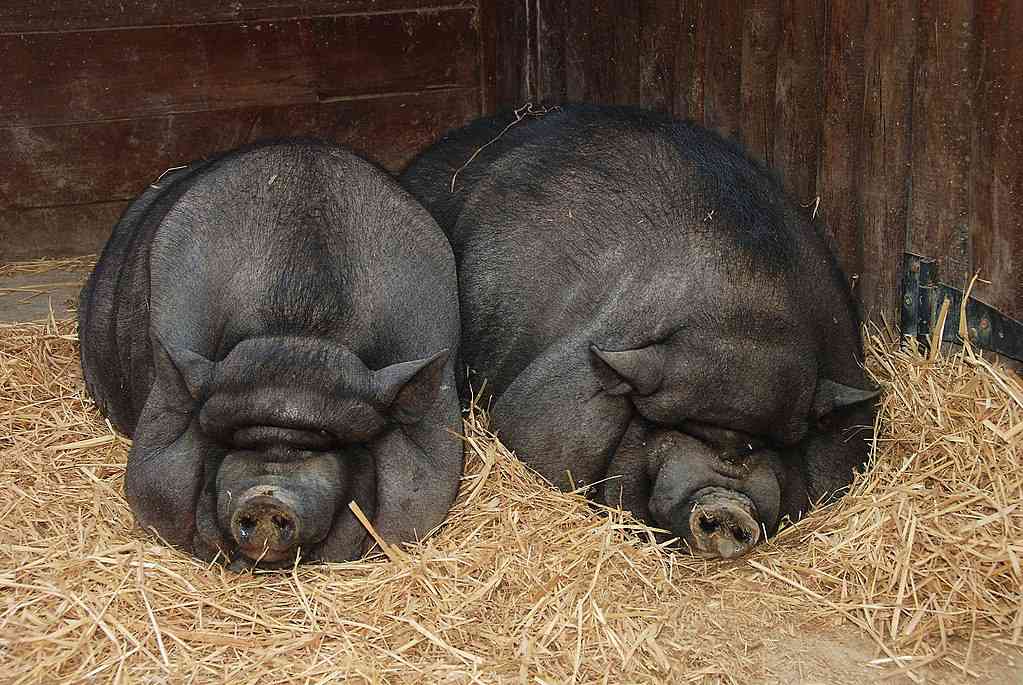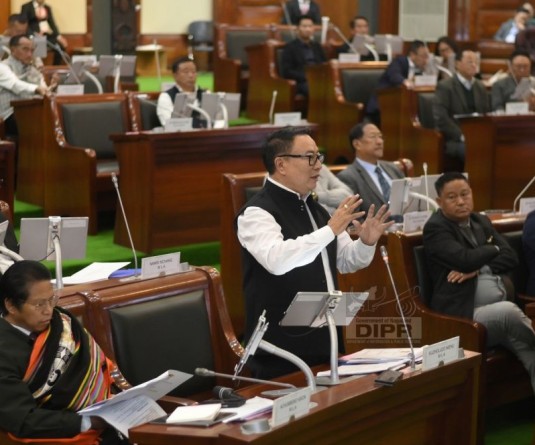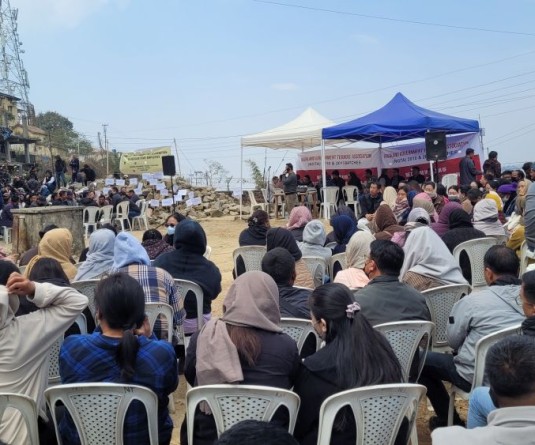Nagaland takes precautions as African Swine Fever grips Assam

Representative Image: Nagaland has been taking precautionary measures to prevent African Swine Flu by banning import of pigs into the state. ( Image Courtesy: Alvesgaspar / CC BY-SA (https://creativecommons.org/licenses/by-sa/4.0 via Wikimedia Commons)
Atono Tsükrü Kense
Kohima | May 11
As the African Swine Fever (ASF) has killed over 13,000 pigs in Assam affecting the livelihood of thousands of already economically distressed people in the animal resource trade as on May 11, the state of Nagaland has been taking precautionary measures by banning import of pigs into the state.
African Swine Fever (ASF) is a viral disease that affects both domestic and wild pigs. It spreads quickly and kills most pigs that get it. Deputy Director of Animal Husbandry & Veterinary Services (AH&VS), Dr Ilang Iheilung said ASF is a viral disease with 100% mortality rate with no vaccine at the moment. At the moment, it is affecting only Upper Assam, he said.
Doubling vigilance at portal entry
Talking to The Morung Express, Dr Iheilung viewed that “as far as the ASF is concerned, we cannot do anything but to prevent the infection in the state” by banning all kinds of livestock import. The state, he informed had issued a ban order as soon as the news was received from the Ministry, and that all state quarantine check posts have been advised for strict monitoring.
When asked from where the livestock are being imported, Dr Iheilung informed that it is imported from Manipur, Burma, Arunachal Pradesh and Assam, while maximum import comes from Punjab, Haryana, Uttar Pradesh, Bihar and Andhra Pradesh. However, all imports are completely banned at present.
On being enquired on the chances of infection coming to the state, he assured that chances are very slim if import from Upper Assam is controlled. Besides the staff in the quarantine check posts particularly, the portal entry from Dillai gate and New Golaghat Road are on high alert and have doubled vigilance and monitoring, he added.
He informed that the Commissioner and Secretary, AH &VS, Libanthung Lotha along with senior officials, visited both the quarantine check posts as well as the District Veterinary Hospital, Dimapur, and instructed the officers and staff manning the institution to strictly follow the government order banning import of pigs from outside the state.
The Deputy Commissioner, Dimapur has also been apprised about the measures taken by the department.
Low supply of livestock
As the consumption rate of meat is very high in Nagaland, especially pork, Dr Iheilung expressed concern on the matter of food security as the state does not have enough sufficient stock to meet the demand.
He however stated that the department is discussing on this and added that “for time being, with no option, we will have to go with whatever meager livestock we have and go along with that.”
Importing Hampshire pigs from UK
Informing the latest development in the department, he said that the department is importing pure breed Hampshire pigs from United Kingdom, which is in New Delhi due to lockdown.
The livestock could not be brought to the state even after the one month quarantine at New Delhi airport because of the lockdown and the subsequent outbreak of the African Swine Fever, informed Dr Iheilung. He was however positive that once those are brought in, good breeds of pigs will be available in the state.
As per the AH&VS department’s annual administrative report 2019-20, the state produces only 43.35% of the total requirement worth of Rs 1219.70 crore leaving a shortfall of 56.65%. Out of this shortfall, the state imported animal husbandry products worth Rs 212.03 crore in monetary terms.
However, the report further stated that despite the gap that exist today in terms of demand and supply, the import quantum is gradually reducing as compared to 2001-02, which in monetary terms stands at Rs 375 crore.






